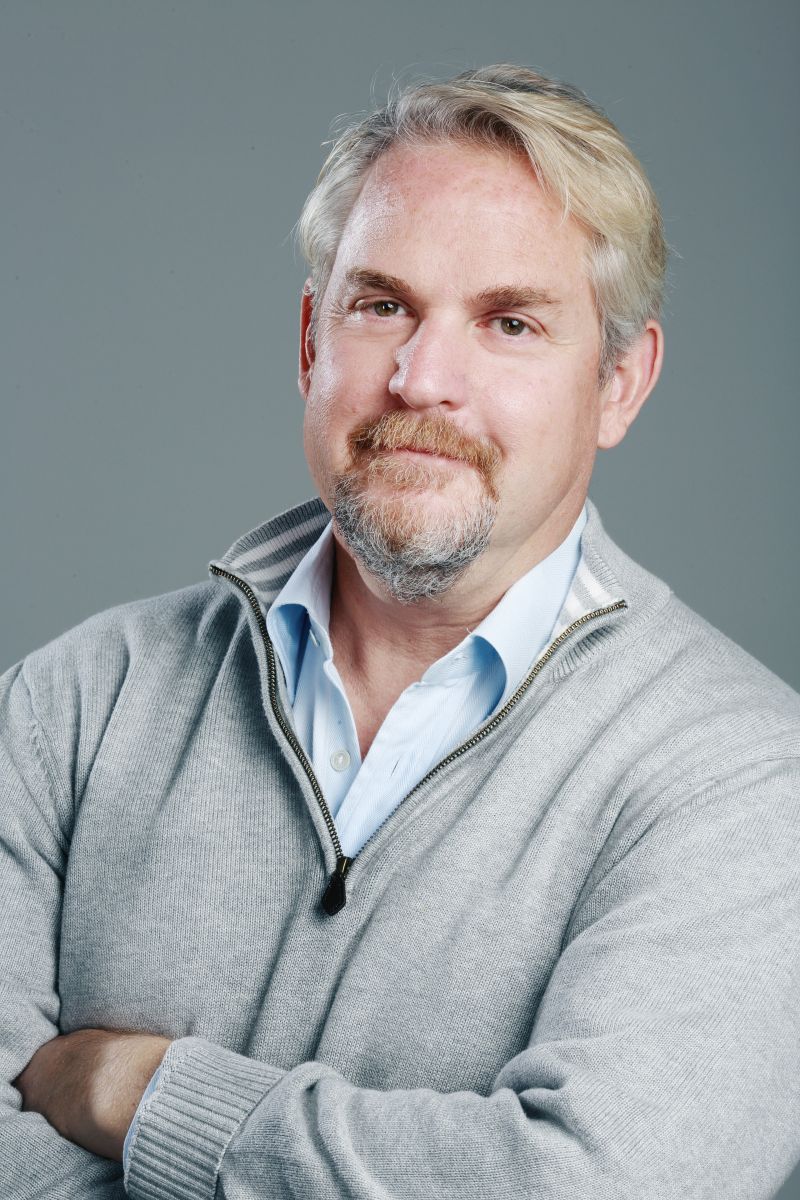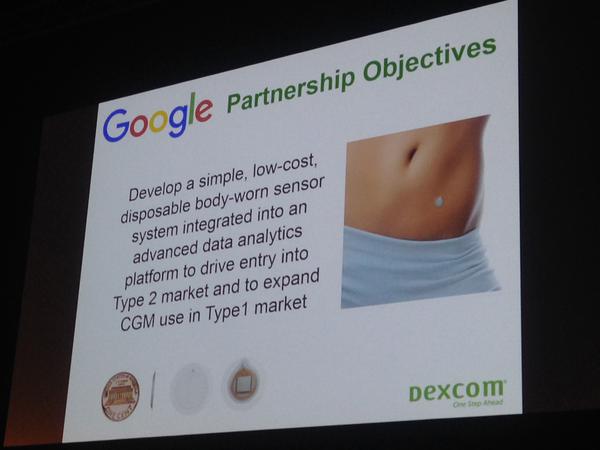What’s Next for Google in Diabetes? New CEO Dr. Andy Conrad Provides a Glimpse
By Kelly Close
 by Varun Iyengar and Kelly Close
by Varun Iyengar and Kelly Close
Twitter Summary: Optimism on @Novartis contact lens and @Dexcom next-gen bandage CGM + contact lens to show colored glucose indicator when eyes closed!
Our team – how lucky we are! – just attended the 2015 Texas FreshAIR biotech conference, where we heard from Google Life Sciences CEO Dr. Andy Conrad on all things Google, including the company’s effort to improve healthcare through new sensors and better data analytics. Dr. Conrad is a powerhouse, having previously served as the Chief Scientific Officer of LabCorp and co-founder of the National Genetics Institute. His compelling remarks reinforced the company’s commitment to diabetes and shared lots of optimism on efforts to develop a next-generation continuous glucose monitoring (CGM) system with Dexcom and a glucose monitoring contact lens with Novartis. Bigger picture, Google (Alphabet!) is clearly serious about health and diabetes, and we look so forward to their contributions over the coming months and years.
.jpg) And on that note, Dr. Conrad shared exciting details on the contact lens’ design, explaining that the contact lens will provide a glucose color indicator when patients close their eyes. That sounds cool, if they can get that to work! Apparently, the goal is to enable patients to close their eyes and “see” a color that reflects whether they are in-range, hypoglycemic, or hyperglycemic.
And on that note, Dr. Conrad shared exciting details on the contact lens’ design, explaining that the contact lens will provide a glucose color indicator when patients close their eyes. That sounds cool, if they can get that to work! Apparently, the goal is to enable patients to close their eyes and “see” a color that reflects whether they are in-range, hypoglycemic, or hyperglycemic.
 More than any other message, Dr. Conrad emphasized that tackling diabetes is the Life Sciences’ biggest near-term priority. This was evident right from his opening anecdote where he described a future where non-invasive glucose monitoring is the norm. Yes! It was incredible to see diabetes singled out so prominently, given the scope of Google’s many other projects (e.g., tremor-cancelling utensils, smart robots, etc.). Dr. Conrad emphasized the desire to choose a disease area where progress is easy to measure (e.g., lower A1cs, fewer complications, more healthcare dollars saved) and where the unmet need is high. While we know that longer-term complications are very time-consuming to track, we would expect Google Life Sciences to be present in every component of this conversation, ideally helping figure out biomarkers that could identify complications faster. Additionally, reducing hypoglcyemia in the short term as a complication would be easier, which Google could address through better glucose monitoring and data analytics software.
More than any other message, Dr. Conrad emphasized that tackling diabetes is the Life Sciences’ biggest near-term priority. This was evident right from his opening anecdote where he described a future where non-invasive glucose monitoring is the norm. Yes! It was incredible to see diabetes singled out so prominently, given the scope of Google’s many other projects (e.g., tremor-cancelling utensils, smart robots, etc.). Dr. Conrad emphasized the desire to choose a disease area where progress is easy to measure (e.g., lower A1cs, fewer complications, more healthcare dollars saved) and where the unmet need is high. While we know that longer-term complications are very time-consuming to track, we would expect Google Life Sciences to be present in every component of this conversation, ideally helping figure out biomarkers that could identify complications faster. Additionally, reducing hypoglcyemia in the short term as a complication would be easier, which Google could address through better glucose monitoring and data analytics software.
Indeed, Google has shown an increasingly strong commitment to diabetes of late, and it will be exciting to see what comes of the company’s three diabetes partnerships:
-
Novartis, announced July 15, 2014, to develop a glucose-sensing contact lenses. The Wall Street Journal said that the lens is expected to enter large-scale, human trials in 2016. We’ll be eager to find out if that’s mid-2016, late-2016, etc.
-
Dexcom, announced August 11, 2015, to develop a next-generation CGM system that aims to be small (the size of a Band-Aid), low-cost, and disposable. The goal is to commercialize the first product in two to three years. We imagine they’ve noticed how easy the Abbott FreeStyle Libre is and are working with Dexcom to create something that is nearly (or more) “non-invasive.”
-
Sanofi, announced August 31, 2015, to work on new digital technology and management tools for diabetes. Although this initiative is still in formation, Sanofi touches a broader set of patients than do either Dexcom or Novartis at this moment. We’re guessing this has been particularly meaningful to the technology giant.
Dr. Conrad shared particular enthusiasm for the future of the company’s two best-known projects: the contact lens with Novartis and CGM with Dexcom. He characterized both as having a lot of potential – for sure, these now seem to be a question of “when” rather than “if” they would happen, though we know both have technological and other hurdles. We don’t feel that Dr. Conrad is put off by the complex set of challenges that diabetes imposes and indeed, it’s been supremely encouraging to see Dr. Conrad’s commitment and drive in diabetes in spades – onwards! -VI/KC







